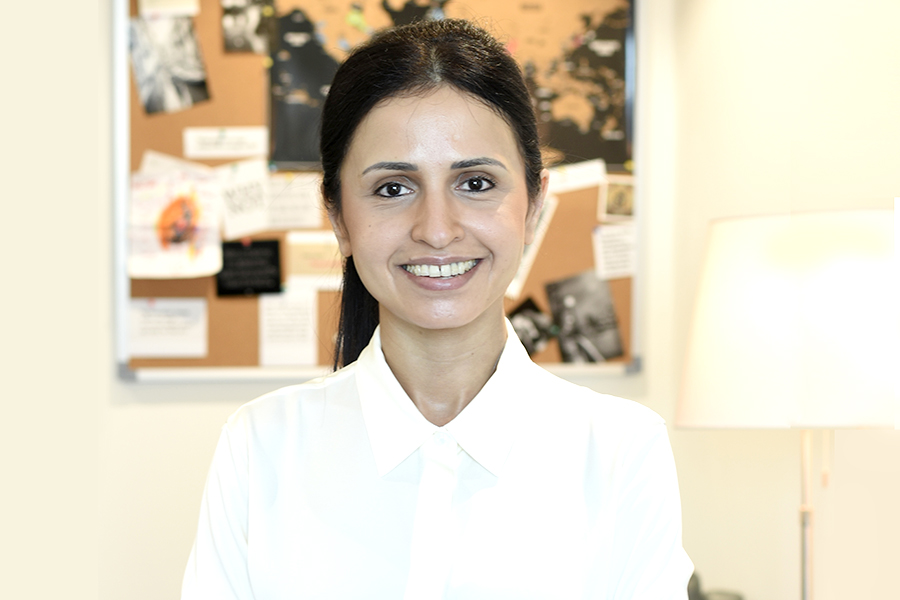
International Women’s Day may be over, but Images RetailME has vowed to actively feature and cover more women in retail throughout the year in order to get their voices heard and ensure equal media representation. This week, we spoke to Zertashia Awan, Director of Customer Service at Amazon MENA, who has played a pivotal role in designing Amazon’s customer experience for the UK and MENA; most recently, the delivery and localisation of the Souq to Amazon migration experience; and creating new standards of customer service in the region.
Women’s day theme this year is #BreakTheBias. What are the biases you’ve had to break as a woman in retail and logistics?
Gender biases are so systemic that navigating them is not an easy task. Breaking them will take time, and we need to do it together. We talk a lot about unconscious biases, but I believe that most gender biases are conscious. There is nothing unconscious about offering women lower salaries than men, promoting men over women of equal calibre, not hiring women for roles that they are as qualified for as men, stereotyping women as emotional, and labelling women leaders as aggressive and bossy. Attributing these inequalities to an unconscious, intangible individual behaviour only means that they will remain in the system. It is our duty to recognise the systemic biases, call them out and demand accountability; only then can we start to break them. I truly believe that fixing the major systemic biases will also go a long way in fixing the everyday ‘unconscious’ biases.
Women drive 75-85% of all purchasing decisions and yet they make up less than 25% of the C-suite in retail. Why?
The C-suite is an outcome. The input – that is missing – is a strong pipeline of potential women leaders in the workplace. Take the MENA region alone. While we have made huge strides in improving the participation of women in the workplace, female labor force participation in MENA still stands at 27%, giving us a smaller pool of female talent vs. male. We need to make deliberate efforts to balance the candidate slate. At Amazon, we insist that our recruitment efforts source a balanced gender pool of candidates to select from.
How is the work environment at Amazon? What measures are being taken to improve women’s positions?
Amazon’s commitment to improving gender diversity, equity and inclusion resonates across the organisation. As an online retail marketplace, it is very important that our workforce represents the diversity of our customers. We value the diverse opinions, points of view, cultural backgrounds and experience that each employee brings; and it is essential for us to include those perspectives as we innovate on behalf of our customers.
Like most other companies, we are also on a journey, but we are making progress every day – from hiring to developing, promoting and retaining strong women leaders. Our recent pledge to become ‘Earth’s Best Employer’ cannot be achieved without creating the earth’s best working environment for women. This creates an urgency for action, and action is exactly what we need right now.
Why is it important for women to be at the crux of retail management and decision-making processes?
For the same reason that it’s important for men to be at the crux of retail management. It is important for innovation. And it is also important because the responsibility of designing the future, and decision making has to be shared between genders. Our experience at Amazon has proved beyond a doubt that diversity fosters innovation and ingenuity because people who think differently breed creativity and develop products and services that are more marketable and make our business more profitable. According to a global study by McKinsey & Company, companies in the top quartile for gender diversity on executive teams were 25% more likely to have above-average profitability than companies in the fourth quartile. Giving women a seat at the table is therefore not just a ‘nice-to-have’, it is a compelling business priority.
How would you qualify the progress made in MENA to date with regards to the perception of women in leadership roles?
There is no region or country in the world that has achieved gender equality. MENA has seen unprecedented, transformative changes in the past few years. Women hold leadership positions and exercise the highest levels of authority in both business and government. Today, Jordan, Morocco, Saudi Arabia, Libya and Oman all have women ambassadors to the United States. This is a shining example of the acceptance of women as authoritative figures. In the UAE, the participation of women in the Cabinet is amongst the highest in the world. Women’s empowerment is at the top of many government agendas in the region, and the private sector has come out in support of this national priority. This year, 18 major private companies in the UAE pledged to ensure that women are in 30% of leadership roles by 2025, signaling even more concerted efforts towards nurturing women leaders in the region. Maintaining the right momentum on this effort will accelerate the speed of change even further.
You must be logged in to post a comment.